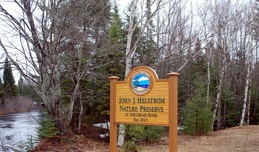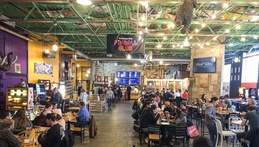Rare Earths Our technological vulnerability
July 24, 2011
Rare Earths: Our technological vulnerabilityRemember this poem from your school days? “For the want of a nail, a shoe
was lost/ For the want of a shoe, a horse was lost/ For the want of a
horse, a rider was lost/ For the want of a rider, a message was lost/ For
the want of a message, a battle was lost/ For the want of a battle, a
country was lost/ For the want of a nail.”
This situation has been repeated again and again and is still happening.
In World War II with the German steel factories turning out weapons for
the Nazi forces, an insurance specialist was called in by the Allies to
identify the weak link in the German military production. The simple
solution was this: German steel manufacturing demanded sulfuric acid. The
source was a single plant in southern Germany and the acid was produced in
ceramic vats. All that was needed was for a spy saboteur to take a hammer
to the acid vats and break them. This was done and German steel production
was set back for months until new ceramic vats could be made.
During the Vietnam War when the primary infantry weapon was the M16 rifle,
the ammunition was produced in one factory in East Alton, Illinois. As the
story goes, one day a carpenter moved an electrician’s cable. Carpenters
weren’t supposed to touch electricians’ stuff, and there was a strike that
shut down the production of the M16 ammunition. In a short time the troops
in Vietnam were running out of ammunition, and the government had to see
that a couple more factories were contracted to make more ammunition, even
after the strike ended, all because of a minor labor dispute.
I learned that only one company in the country made brushes for electric
motors, If they went out of production that would stop all companies from
building electric motors.
JAPAN & PAINT
Today, because of the earthquake and tsunami in Japan, a key ingredient
for U.S. auto production is no longer available. It is pigment for the
paint used in auto production. That is the weak link.
More sinister is this one: five state-of-the art foundries were built in
Michigan for the manufacture of windmills to generate electricity. You may
have seen some of those massive constructions. They are as tall as 300
feet, like a 30-story building, but the key part is the generator that
makes the electricity. It’s a small unit, but the construction of the
generators requires rare earth.
Rare earths are mineral substances that are hard to find with names like
Yttrium, Praseodymium, Samerium, Europium, Erbium and Promethium. Many
are used for the construction of lasers (Dysprosium, Holmium, Erbium,
Ytterbium, etc.). Need a nuclear battery? Then you’ll need the rare
earth Promethium to build one. Aerospace aluminum, rare earth magnets,
vanadium steel and many other technologically-advanced materials and
products all rely on rare earths (ie., Scandium Dysprosium, Erbium).
In the case of Michigan’s windmill generators, the one mine in America
that produced the rare earth needed for a key part was closed because a
Chinese source was more plentiful. Ah, but the Chinese also build
windmills and they have announced that they are curtailing export of the
essential rare earths. As a result, the five Michigan foundries are closed
down, and China is on the way to cornering the world windmill production.
THE HELIUM MARKET
The United States did something similar to Germans in the days of the
Hindenberg and other lighter-than-air ships of the 1930s. The U.S. is
the world’s source for helium and would not sell it to the
technologically-advanced Germans, so they were forced to substitute
flammable hydrogen for their dirigibles. Result: poof! The fiery crash
of the Hindenberg at Lakehurst, New Jersey in 1937 was the death knell
for airships. That was in spite of a flawless record of the Graf
Zeppelin in making more than 70 trips from Germany to South America.
The future of an industry -- even of a country -- can depend on a
single vulnerable element, even if it is as simple as a horseshoe nail.
For the want of a nail.
Visit the web site www.hu.mtu.edu/~hlsachs where you can listen to two
stories, read a third, read reviews, and find links to the publishers of
my books.
Trending

A Week of Inspirational Speakers at the Ramsdell
Sabrina Little shines the light on how sports can shape character as part of the January Series at The Ramsdell Regional Cen… Read More >>
Ready, Set, Camp! Northern Michigan's 2026 Summer Camps
Yes, it’s January, but many summer camp registrations are now open or will soon be available. Below, we’ll share… Read More >>
LTC Announces Record-Breaking Conservation Year
Earlier this month, the Little Traverse Conservancy made a big announcement: 2025 was their best conservation year ever in t… Read More >>


